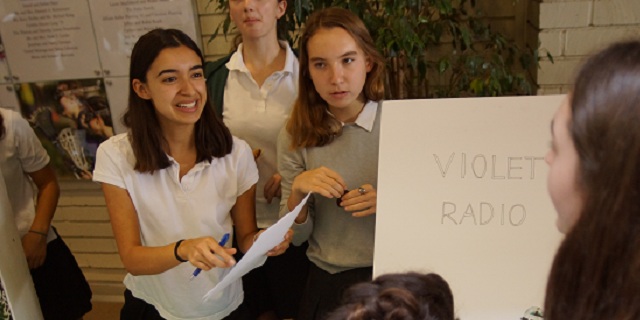
By Sydney Gough and Nina Vogel
Dean of Student Life and Spanish Instructor Regina Rosi introduced a new plan this year to provide grants to clubs. Under this new policy, club leaders can apply for grants in order to fund large-scale events. The School will supply a maximum of $500 to select clubs that submit strong applications indicating their worthy causes. The new grant policy will allow clubs to reach people outside their members while simultaneously teaching students to take initiative and manage money effectively. The School will continue to provide clubs with smaller amounts of money, though, for operational costs. For example, the Blankets and Beanies club received about $300 to cover costs of supplies, according to Rosi.
The School initially offered clubs Nov. 6 and Feb. 26 dates for afternoon or evening slots to host events. Because the grant program is new this year and clubs are just getting underway, club leaders are not familiar with it and have not been quick to apply. Rosi said that she expects an event to take place in April instead, though. According to Rosi, clubs such as Code Violet and Girls Go Global have been discussing grant proposals for a computer science event or movie screening, respectively. Pencils for Promise has been considering partnering with another club to put on an event as well.
Rosi and Community Outreach Program Department Head Pamela Wright will continue to give clubs smaller amounts of money to cover costs this year, but they will most likely implement a grant system for all allocations in the future—not just for large event funding. These smaller amounts of money are essential for many clubs on campus. By requiring applications to receive the grants, the School would be encouraging clubs to consider the greater cause for which they stand. The application would ask about projects and goals for clubs. Rosi said that one of the ideas behind implementing a broader grant program would be to connect clubs to the community around them.
The new Violet Radio club is one that relies on smaller-scale funding from the Community Outreach office.
“We already got [funding] from the school to broadcast our station,” said Cleo ’16, co-president of Violet Radio.
Her club received $100 to pay for the broadcasting software they need.
In the past, clubs themselves have been responsible for fundraising to host large events with goals of raising enough extra money for donations. In the last few years, however, event turnout has declined. Last year, the African American Cultural Exchange (AACE) prepared to host a dance that would benefit the club but cancelled due to low ticket sales. Cancellations like this one are challenging because club members and faculty have worked hard to book spaces, hire security and rent equipment in advance.
To address this problem, Rosi and other faculty have asked that clubs host joint fundraisers that support a compilation of different causes to ensure greater participation. The new grants are intended to help events run more smoothly because the clubs will not need to spend time fundraising to simply put on the events, let alone earn a profit from them.






